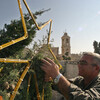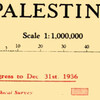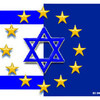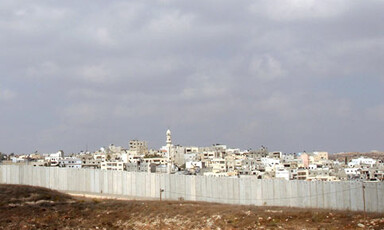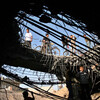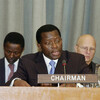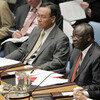
Violence must be met with concrete political, economic actions, Security Council told
20 December 2005
In the present delicate period leading up to both Palestinian and Israeli elections, the forces of violence and despair must be met with concrete political and economic action — action that will build a foundation in which the “agenda of peace” could be made stronger than the “agenda of conflict”, the Under-Secretary-General for Political Affairs, Ibrahim Gambari, told the Security Council this afternoon. In the coming weeks, the parties must strive for a return to calm. Read more about Violence must be met with concrete political, economic actions, Security Council told
